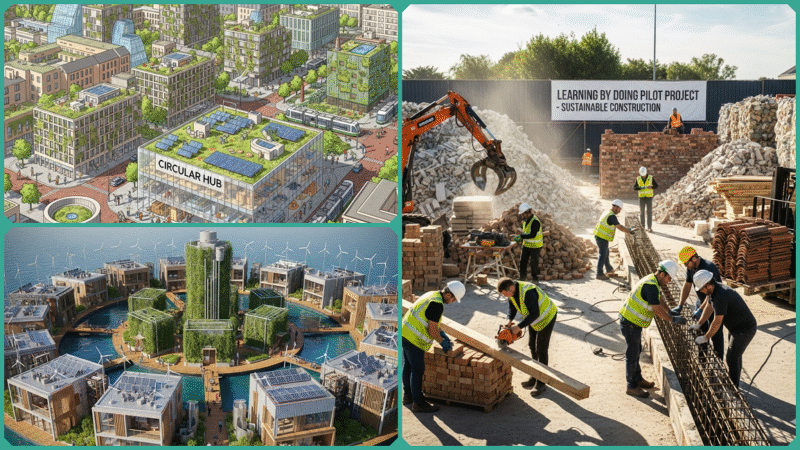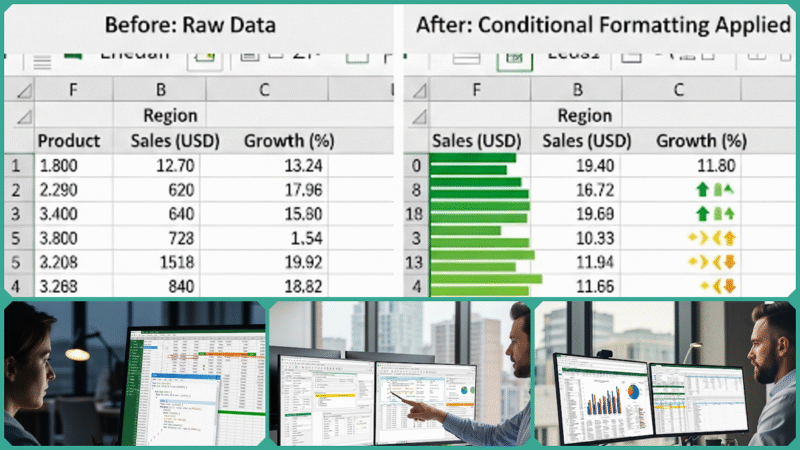Legal Due Diligence Investors Need When Buying Land in Lagos
Estimated reading time: 27 minutes
Buying land in Lagos offers a wide range of promising opportunities, but also involves navigating through complex and often challenging legal issues. For investors, particularly those from the diaspora, as well as high-net-worth individuals, professionals, and small-scale developers, it is essential to conduct thorough legal due diligence.
This careful and detailed examination acts as the essential and foundational cornerstone that guarantees a secure, reliable, and ultimately highly profitable land acquisition process. By thoroughly assessing every aspect, it helps to minimize risks and maximize potential benefits, ensuring that the entire transaction proceeds smoothly and successfully.

This comprehensive guide thoroughly explains why conducting legal due diligence is critical in Lagos, especially given the complexities of the local market. It outlines the essential key steps involved in the due diligence process, highlights recent trends affecting real estate transactions, and offers practical, actionable advice designed to help investors avoid costly pitfalls.
By following the guidance provided, investors can better protect their valuable investments and confidently navigate the highly competitive and often challenging Lagos real estate market with greater assurance and peace of mind.
Why Legal Due Diligence Matters When Buying Land in Lagos
Legal due diligence is crucial when buying land in Lagos due to the city’s dynamic real estate market and common risks such as fraudulent transactions, land disputes, and government land acquisitions. Lagos attracts significant investment because of its booming economy and rising property values, but this also makes land transactions complex and risky without proper verification.
Legal due diligence involves verifying land ownership, confirming the authenticity of title documents, checking for encumbrances or disputes, and ensuring compliance with all regulatory requirements before making a purchase.
Many investors, especially those in the diaspora or unfamiliar with Lagos’s legal landscape, have lost money by buying land with fake or forged titles, land under compulsory government acquisition, or properties involved in court cases and multiple ownership claims.
The local phenomenon of “omo-onile” (land grabbers) and fraudulent brokers further complicates the market for uninformed buyers. By conducting thorough legal due diligence, investors protect themselves against these pitfalls and ensure their investment is secure.
Key components of legal due diligence include a thorough examination and analysis of all relevant legal documents, contracts, and agreements related to the transaction or business in question. This process involves:
- Verifying Title Documents: Confirming possession of a valid Certificate of Occupancy (C of O), which serves as the primary and most authoritative official government-issued land title in Lagos. It is essential to ensure that this document is current and authentic. Additionally, obtaining the Governor’s Consent is crucial, as it is a mandatory requirement for any valid transfer of land titles in the region. Equally important are properly registered Deed of Assignment documents, which must be thoroughly checked to guarantee that all ownership transfers have been legally documented and recorded.
- Land Registry Search: Conducting a thorough examination of the Lagos State Land Registry to accurately verify the identity of the registered owner of the property, as well as to uncover any existing mortgages, liens, or claims made by third parties. This search also helps to identify any cautions, notices, or alerts that may indicate potential disputes or legal issues surrounding the property in question, ensuring a comprehensive understanding of its status.
- Physical Boundary Confirmation: Engaging the services of a licensed and experienced surveyor to thoroughly verify and confirm that the physical boundaries of the land precisely correspond with those detailed on the official survey plan. This process ensures that the property lines are accurate and that the land does not encroach upon any government-owned land or areas that have been designated or flagged for future acquisition or development.
- Government Acquisition Checks: It is essential to consult the Surveyor General’s Office or other relevant government agencies to thoroughly verify that the land in question is not currently subject to any compulsory acquisition processes or demolition orders. This step helps to ensure that there are no pending government claims or legal actions that could affect the ownership or use of the property shortly.
- Litigation Search: Conducting a thorough examination of court records and legal databases to verify that the land in question is free from any ongoing or pending legal disputes, claims, or ownership challenges that could affect its title or transfer. This process helps to identify any lawsuits, liens, or encumbrances that might impact the property’s legal status.
- Community Verification: Visiting the site in person and actively engaging with local community leaders and residents to uncover any informal or customary issues that might affect the property, such as adverse possession rights or “omo-onile” activities. These issues often do not appear in official records but can significantly impact the ownership and use of the land. This process involves building trust and gathering insights from those who have lived in the area for a long time, ensuring a comprehensive understanding of all potential claims or disputes related to the property.
Failing to undertake these due diligence steps exposes buyers to serious risks that can lead to financial loss and lengthy legal battles. Conversely, conducting legal due diligence acts as the most critical safeguard for secure land acquisition in Lagos’s vibrant but complex property market.
Modern trends such as the digitization of land records and the use of GIS mapping technologies are making some aspects of due diligence more transparent and efficient, especially for diaspora investors relying on remote verification. However, engaging an experienced Lagos-based real estate lawyer to coordinate these checks remains indispensable to navigate local regulatory and legal nuances effectively.
In Summary
Legal due diligence serves as the essential and fundamental “safety net” that shields investors from a wide range of potential pitfalls, including scams, illegitimate sales, government land claims, and various disputes.
It guarantees that you acquire land with a clear, valid, and enforceable title, completely free from any hidden risks or encumbrances. This process is an absolute necessity for anyone serious about investing with confidence and security in the competitive and dynamic Lagos real estate market.
Key Concepts and Essential Legal Documents in Lagos Land Due Diligence
Understanding the key concepts and essential legal documents in Lagos land due diligence is fundamental and crucial for anyone looking to safely and confidently invest in property within the bustling city of Lagos.
Here is a comprehensive and detailed explanation of these important concepts and critical documents that every investor should be well aware of before making any property decisions:
Certificate of Occupancy (C of O)
- The C of O is the most important legal document proving land ownership in Lagos.
- Issued by the Lagos State Government, it grants the holder a statutory right to occupy and use the land, typically valid for 99 years.
- It serves as an official acknowledgment of ownership and is crucial for any secure land transaction.
- Buying land with a valid C of O reduces risks of future government interference and is often a requirement for mortgages or development approvals.
Governor’s Consent
- Under Nigeria’s Land Use Act, any transfer of land ownership must be approved by the Governor of Lagos State.
- This consent is legally required for the sale or assignment of land to be valid.
- Without the Governor’s Consent, sales agreements and title transfers are considered void, regardless of other documents. It transforms the Deed of Assignment into a legally recognized transfer of ownership.
Deed of Assignment
- This is the legal document that transfers ownership rights from the seller to the buyer.
- It must be properly executed and registered with the Lagos State Land Registry to be effective.
- The deed traces the origin of the title and confirms the buyer’s rights to the property after purchase.
- It is the culmination of the sale process after securing the Governor’s Consent.
Survey Plan
- Prepared by a licensed surveyor, the survey plan details the land’s size, boundaries, and geographical coordinates.
- It ensures the exact extent and location of the property are known and helps avoid overlaps with government parcels or neighboring lands.
- Survey plans are vital for confirming that the land is free from encroachment or government acquisition.
Land Registry Search
- Conducting a land registry search at the Lagos State Land Registry (usually at Alausa) is a critical due diligence step.
- This search verifies the legally registered owner of the land, confirms the validity of title documents, and reveals any existing mortgages, liens, caveats, or third-party claims against the property.
- It also discloses any cautions or notices related to disputes affecting the land.
Other Essential Checks
- Probate Registry: To validate claims based on inheritance, ensuring the seller or previous owner’s estate rights are clear.
- Court Registry: To check for ongoing lawsuits or legal disputes involving the land, preventing the purchase of land embroiled in litigation.
- Surveyor General’s Office: To confirm that the land falls outside any government acquisition or pending compulsory purchase areas, and verify physical boundaries officially.
- Community Leaders’ Offices: In some informal or customary land areas, community or traditional leaders’ confirmation of ownership or occupancy rights can be important for validating claims outside formal documentation.
These documents and checks collectively form the backbone of legal due diligence in Lagos land transactions. They help investors confirm legitimate ownership, ensure legal compliance, avoid fraud, and protect against future disputes or government actions that could jeopardize their investment.
In Summary
A thorough and proper due diligence process for buying land in Lagos must carefully verify several crucial factors to ensure a secure and legally sound transaction:
- A valid and up-to-date Certificate of Occupancy, which serves as official documentation confirming that a building complies with all necessary codes and is safe for occupancy.
- Governor’s Consent for property transfer is an essential legal requirement in many jurisdictions. This consent is necessary to validate the transfer of ownership rights from one party to another.
- A properly executed and duly registered Deed of Assignment is essential for ensuring the legal transfer of rights and interests from one party to another. This document must be carefully prepared, signed by all relevant parties, and officially recorded with the appropriate authorities to provide enforceability and legal recognition.
- A highly accurate and up-to-date Survey Plan, meticulously prepared to reflect the most current data and measurements available, ensuring precision and reliability for all your surveying needs.
- Thorough and Accurate Land Registry Search Results, providing clear and reliable information for your property needs.
- There is a complete absence of any ongoing legal disputes or conflicts, as well as no indications of government acquisition flags or related concerns.
- Community and customary confirmations, which were applicable and relevant, are essential to ensure that all traditions and local practices are properly respected and adhered to in the process. These confirmations help maintain harmony and acknowledge the importance of cultural norms within the community.
This foundational knowledge is in full alignment with the insights and guidelines provided by recognized legal authorities and reputable real estate experts who specialize in land transactions specifically within the Lagos region. It reflects a comprehensive understanding that mirrors the standards and practices commonly accepted by professionals in the field.
Step-by-Step Legal Due Diligence Process for Land Buyers in Lagos
The step-by-step legal due diligence process for land buyers in Lagos is a carefully organized and methodical sequence of actions specifically designed to ensure a secure and legally sound land acquisition. This thorough procedure helps prospective buyers avoid the numerous common pitfalls and challenges commonly encountered in Lagos’s highly complex and sometimes unpredictable property market.
Below is a detailed and comprehensive breakdown of this process, aligned with authoritative and reliable sources to guide buyers effectively throughout their land purchase journey:
- Engage a Qualified Real Estate Lawyer: Due diligence requires expert handling. Retain a reputable real estate lawyer experienced in Lagos property law to oversee the entire process. The lawyer will verify documents, conduct necessary searches at government agencies, ensure Governor’s Consent is obtained, and confirm registration of the Deed of Assignment.
- Conduct a Land Registry Search: A critical step is to verify the registered owner’s name, confirm the authenticity of the Certificate of Occupancy (C of O), and uncover any mortgages, liens, or third-party claims by searching at the Lagos State Land Registry (usually in Alausa). This search also alerts you to any cautions or notices signaling disputes or encumbrances on the land.
- Verify Physical Land Boundaries: Hire a licensed surveyor to inspect the land physically and compare the boundaries on-site with those shown in the Survey Plan records. This step helps detect encroachments, sale of overlapping or wrong parcels, and ensures the land corresponds exactly to what the seller claims.
- Confirm No Government Acquisition or Demolition Orders: Consult the Surveyor General’s Office or other relevant government agencies to check that the land is not subject to government compulsory acquisition or earmarked for demolition, which is a common risk in Lagos due to frequent infrastructure projects.
- Validate the Title Documents: The lawyer must scrutinize the original title documents—Certificate of Occupancy, Deed of Assignment, and Governor’s Consent—to verify their authenticity. This includes checking signatures, matching them against registry records, and confirming all necessary consents for transfer have been properly issued.
- Check for Court Litigation: Search the Court Registry to determine if the land is involved in ongoing legal disputes or ownership challenges. Court judgments and injunctions can override registered titles, so this step is essential to avoid future litigation after purchase.
- Visit the Site and Engage Community Leaders: A physical site visit helps uncover informal or hidden risks such as the presence of “omo-onile” (local land grabbers), adverse possession claims, or other community disputes that may not appear in official records. Engaging nearby residents and local leaders provides a better understanding of potential neighborhood issues.
This carefully designed sequence, which is strongly supported by experienced lawyers working in close coordination with official government agencies and employing the expertise of licensed professional surveyors, represents the most effective and reliable best practice for significantly mitigating the various risks associated with land investment in Lagos’s highly vibrant, dynamic, and often challenging real estate market.
Additional practical notes to consider include the following important details:
- Utilize technology whenever possible, such as requesting online registry verification or obtaining GIS maps directly from the surveyor, to enhance accuracy and efficiency. However, it is crucial to never depend exclusively on digital data alone without performing thorough physical inspections and verifications to ensure reliability and prevent errors.
- Always make sure to personally request and thoroughly inspect the original title documents, or have this done through a trusted and qualified legal representative who can verify their authenticity on your behalf.
- Be cautious and vigilant when making cash payments that do not come with proper receipts or when engaging in informal agreements that lack any form of legal documentation or official proof. Such transactions can lead to complications or disputes later on.
By carefully following these detailed and comprehensive steps, investors—particularly diaspora Nigerians living abroad and first-time property buyers—can effectively safeguard their investment, steer clear of common and potentially costly scams, and guarantee that their land purchase in Lagos is fully compliant with all relevant legal requirements and regulations.
Current Trends and Innovations in Legal Due Diligence
Current trends and innovations in legal due diligence for purchasing land in Lagos demonstrate a significant and growing emphasis on digitalization, stricter regulatory frameworks, and the integration of advanced mapping and geospatial technologies.
These developments aim to greatly enhance transparency, minimize the risks of fraud, and significantly streamline the entire process of land transactions, making it more efficient and reliable for all parties involved.
Digitalization of Land Records
Lagos State has launched several initiatives to digitize its land registry and related property management systems. A notable example is the Lagos Identity Project, which implements a digital house-numbering system using QR-coded address plates.
This provides precise, verifiable property identification that facilitates easier title verification, property tracing, and government record keeping. The project aims to curb issues like tax evasion, untraceable addresses, and rental fraud by formalizing property records digitally.
Additionally, Lagos State Governor Babajide Sanwo-Olu unveiled an electronic Geographic Information System (e-GIS) portal that allows residents and investors to conduct electronic land registration, title application, and fee payments online. This system drastically reduces manual processes, eliminates the need for physical visits to registration offices, and enhances security and transparency of land transactions.
Licensed Real Estate Agents Only
The Lagos Real Estate Regulatory Authority Bill enforces the requirement for real estate agents to be licensed to legally conduct transactions. This regulation is designed to reduce risks for buyers by ensuring agents meet professional standards and that their transactions are legally recognized. Insisting on licensed professionals adds a critical layer of protection against scams and fraudulent dealings for investors[Previous conversation context].
GIS Mapping and Surveying Technologies
Geographic Information Systems (GIS) and other advanced surveying technologies are now integral to the land due diligence process in Lagos. The digital house numbering system mentioned above was supported by two years of aerial mapping. Modern GIS tools allow surveyors to create highly accurate, digital land maps, verifying land boundaries precisely and helping buyers avoid disputes over overlaps, encroachments, or government acquisition zones.
Such digital mapping serves as a valuable complement to official survey plans and significantly enhances the level of confidence during the physical verification of land parcels. This is particularly crucial in areas where disputes or conflicting claims over land boundaries are frequent and pose ongoing challenges.
By providing a clear and accessible visual representation, digital mapping helps clarify ownership and boundary details, thereby supporting more accurate and reliable land management and dispute resolution processes.
Emerging Blockchain-Based Land Registry
Looking ahead, Lagos is preparing to revamp its land registry with blockchain technology to provide even greater security and transparency. Blockchain’s tamper-proof and fully traceable ledger system will permanently record land transactions and title deeds, significantly reducing fraud and corruption risks.
This significant upgrade, spearheaded by a dedicated consortium of local technology companies working closely in partnership with the Lagos State government, is planned to be implemented in carefully structured phases. The entire rollout process is anticipated to take place progressively over the course of the next 18 months.
Blockchain adoption could reduce verification times, cut costs, and boost investor confidence by creating a secure, immutable record of ownership and property history. The move aligns Lagos with broader African trends where several countries are modernizing land administration through digitization and blockchain innovations.
Technology-Supported Due Diligence for Diaspora Investors
These technological innovations particularly benefit Nigerians in the diaspora who face challenges conducting physical due diligence from abroad. Online portals, digital registries, QR code property identification, GIS maps, and soon blockchain records enable remote, reliable verification of property details and ownership status.
Secure digital document exchanges combined with real-time progress tracking significantly enhance transparency and accountability throughout the entire process. These advancements help to minimize and reduce the risk of scams and fraudulent activities that are unfortunately common in many cross-border land transactions, providing greater confidence and security to all parties involved.
Summary of the Current Trends and Innovations in Legal Due Diligence
| Trend/Innovation | Purpose and Benefits |
|---|---|
| Digital Land Registry & e-GIS | Faster, transparent access to land records and registrations with online portals |
| Licensed Agents Regulation | Professionalizing agents to reduce fraud and protect buyers |
| GIS Mapping & Surveying | Accurate, digital boundary verification prevents disputes and encroachments |
| Blockchain Land Registry (Upcoming) | Immutable, secure, traceable transaction records enhance confidence |
| Tech Tools for Diaspora | Remote verification capabilities for investors abroad |
These technological and procedural advances are increasingly contributing to the development of a more foolproof, efficient, and highly secure due diligence process, which is critical for any serious investor looking to purchase land in Lagos today.
They serve as important complements to traditional steps, including lawyer-led document verification, thorough physical inspections, and detailed registry searches. Together, these elements form a comprehensive and well-rounded approach that significantly helps in mitigating various risks associated with the dynamic and fast-paced Lagos real estate market.
Common Pitfalls and How to Avoid Them
Common pitfalls encountered when buying land in Lagos frequently lead to substantial financial losses and complex legal challenges, particularly for investors who are not well-versed in the local real estate landscape and its unique intricacies. This detailed explanation highlights these common pitfalls and provides practical advice on how to avoid them effectively.
| Pitfall | What It Means | How to Avoid |
|---|---|---|
| Fake or forged titles | Sellers present invalid or counterfeit documents pretending to prove ownership. Many fraudulent sellers attempt to scam buyers with fake Certificates of Occupancy (C of O) or forged deeds. | Confirm with your lawyer or through the Land Registry that Governor’s Consent has been obtained and properly registered for the land transfer, as this is a mandatory legal requirement to make the deed binding. |
| Lack of the governor’s consent | Under the Land Use Act, any land sale or transfer requires approval from the Lagos State Governor. Without this consent, the sale is legally invalid, even if other documents appear genuine. | Hire a licensed surveyor to conduct a thorough physical inspection and confirm that the land boundaries conform precisely to the official survey plan recorded at the Surveyor-General’s office. Also, ensure the land is not flagged for government acquisition that could affect boundaries. |
| Overlapping or encroached land | Land boundaries extend onto government land or adjoining parcels, sometimes unknowingly due to poor survey or unscrupulous sellers selling overlapping plots. | Search the Surveyor General’s office and relevant government agencies to verify that the land is not under compulsory acquisition or demolition orders before purchase |
| Government acquisition | The land is earmarked for compulsory acquisition or demolition by the government for infrastructure or public projects. Buying such land risks total loss of investment. | Run a comprehensive land registry search to confirm the registered owner’s identity. Engage a lawyer to confirm that the seller has full legal title and authority to sell the land, including checking for additional community or family approvals if customary ownership applies. |
| Sale by unauthorized person | The person selling the land does not have legal ownership or authority, such as someone impersonating the real owner or selling without required family/community consent. | Visit the land in person, engage local community leaders and neighbors to understand any informal claims or land conflicts. Legal protection with the help of a lawyer may be necessary if “omo-onile” poses a threat. |
| Sale by an unauthorized person | The land is involved in lawsuits or ownership challenges, which can void or delay transactions and create risks for buyers. | Perform a search at the Court Registry for any ongoing or past litigation involving the land, ensuring there are no court injunctions or disputes that might affect ownership or use |
| “Omo-onile” or land grabbers | Local groups or individuals who use intimidation or force to claim land rights, often in informal or customary land settings, complicate ownership. | Visit the land in person, engage local community leaders and neighbors to understand any informal claims or land conflicts. Legal protection with the help of a lawyer may be necessary if “omo-onile” poses a threat |
Additional Recommendations and Suggestions for Improvement:
- Always engage a qualified Lagos-based real estate lawyer to lead due diligence, verify documents, and manage official searches.
- Avoid cash transactions without receipts or informal deals lacking proper documentation.
- Use Lagos State’s ongoing digital tools, such as online land registry portals and GIS mapping, to cross-verify records remotely when physical presence is difficult, especially for diaspora investors.
- Insist on original documents, including the Certificate of Occupancy, Governor’s Consent, and Deed of Assignment — photocopies or scanned versions are insufficient without validation.
- Never rely solely on verbal assurances or informal agreements.
By carefully following these avoidance strategies, which are firmly rooted in verified legal and procedural checks, investors can greatly reduce the potential risks involved and effectively safeguard their valuable investments in Lagos land.
These well-established methods provide a reliable framework that helps ensure the security and legitimacy of property transactions, thereby offering investors much-needed peace of mind and confidence in their real estate ventures.
Practical Tips for Diaspora and First-Time Investors
For diaspora members and first-time investors who are interested in purchasing land in Lagos, these practical and invaluable tips are essential to follow to guarantee a secure, transparent, and smooth transaction process that protects your investment and peace of mind:
- Hire a Reputable Lagos-Based Real Estate Lawyer: A qualified lawyer experienced in Lagos property law will lead the due diligence process, verify all title documents, conduct necessary searches at government offices (such as the Land Registry and Surveyor General’s Office), and oversee compliance with regulatory requirements like Governor’s Consent. Their local expertise helps navigate Lagos’s complex legal landscape and avoid common pitfalls.
- Avoid Deals Based on Verbal Promises or Informal Agreements: Always insist on original, government-issued title documents such as the Certificate of Occupancy (C of O), Governor’s Consent, Deed of Assignment, and the Survey Plan. Do not rely on photocopies or verbal assurances, as these are frequent causes of fraud.
- Leverage Technology Tools: Use official online resources, such as Lagos State’s digital Land Registry verification portals and licensed real estate agent directories, to cross-check information remotely. These tools help especially diaspora investors who cannot always visit in person.
- Physically Visit the Land or Send a Trusted Representative: A site visit is crucial to confirm the property’s physical boundaries and status. It helps identify informal risks like “omo-onile” (local land grabbers), boundary disputes, or signs of government acquisition, which may not be recorded officially.
- Check All Fees Upfront and Obtain Receipts: Insist on documented payment of all fees related to the transaction. Avoid cash payments without official receipts, as this reduces the chance of fraud and provides financial proof should disputes arise.
These practical tips closely align with the best practices that have been thoroughly confirmed and endorsed by experienced real estate experts as well as reputable legal professionals based in Lagos. They serve as essential and critical safeguards designed to protect investors—particularly those who are part of the diaspora or individuals who are new and unfamiliar with the complexities of the Lagos property market.
FAQs
What is legal due diligence in land buying?
Legal due diligence is the comprehensive process of verifying the ownership status, authenticity of title documents, presence of any disputes or encumbrances (like mortgages or claims), and ensuring all necessary government approvals are in place before completing a land purchase in Lagos. It protects buyers from fraud, overlapping claims, government acquisitions, and legal complications.
How do I verify land ownership in Lagos?
You verify ownership primarily through a Land Registry search at the Lagos State Land Registry (usually located in Alausa). This involves checking the registered owner’s name, confirming the authenticity of the Certificate of Occupancy (C of O), Governor’s Consent for transfer, and uncovering any mortgages or legal encumbrances. Increasingly, authorized online portals also provide access to registry information. Legal counsel typically supports and interprets these searches for buyers.
What documents should I insist on when buying land?
The essential legal documents required for purchasing land in Lagos include several key papers that ensure the transaction is legitimate and secure. These documents typically encompass:
- Certificate of Occupancy (C of O): Official government-issued title valid for 99 years.
- Governor’s Consent: Mandatory government approval for any land transfer under the Land Use Act.
- Deed of Assignment: Legal document transferring ownership from seller to buyer, which must be properly executed and registered.
- Survey Plan: Prepared by a licensed surveyor, confirming land boundaries and size.
- Valid identification of the seller to confirm identity and authority to sell.
Additionally, it is highly advisable to obtain the purchase receipt and thoroughly verify that there are no pending court cases or acquisition notices related to the property. Taking these extra steps helps ensure that the transaction is clear of any legal complications or disputes.
Can government acquisition affect my property rights?
Lagos State frequently undertakes compulsory acquisition of land for public infrastructure projects. If a property is subject to government acquisition or demolition orders, investing in it can lead to loss of the property without compensation or with delayed compensation. Therefore, part of due diligence includes checking with the Surveyor General’s Office and other government agencies to confirm that the land is not under acquisition.
How does technology aid legal due diligence?
Technological advancements have played an increasingly significant and supportive role in enhancing the due diligence process in Lagos, making it more efficient and reliable than ever before:
- Digital Land Registries and Online Portals: Allow remote verification of land status, ownership, and title documents.
- Geographic Information Systems (GIS): Provide precise digital mapping of land boundaries to prevent overlaps or encroachments.
- Electronic Document Exchanges and Secure Communication Platforms: Enhance transparency and speed of document verification and transaction monitoring.
- Upcoming integration of blockchain technology promises tamper-proof records to further secure land ownership data.
These tools prove to be particularly valuable and beneficial for diaspora investors or individuals who find themselves unable to carry out physical inspections on a regular basis or as frequently as needed. They offer a practical solution for those who are geographically distant or have limited opportunities to visit properties in person.
In Conclusion
Purchasing land in Lagos remains one of the most promising and lucrative investment opportunities in 2025, largely due to the city’s rapid pace of urbanization, ongoing infrastructure development, and robust economic growth.
This trend is especially evident in key areas such as the Lekki Free Trade Zone and other rapidly emerging urban corridors, which are attracting substantial interest from investors and developers alike. However, despite the immense potential for prof
it and growth, this opportunity is accompanied by significant challenges and inherent risks. Consequently, it is absolutely critical for investors to conduct thorough and meticulous legal due diligence before proceeding with any land acquisition in order to protect their investment and avoid future disputes or complications.
Key risks faced by investors include:
- Fraudulent or forged titles: Fake Certificate of Occupancy (C of O) and forged deeds are common, requiring rigorous verification with the Lagos State Land Registry and legal counsel.
- Government acquisition and demolition: Lagos State often acquires land for public infrastructure projects. Investing in properties slated for compulsory acquisition can lead to total loss or protracted compensation disputes.
- Land disputes and “omo-onile” issues: Local land grabbers and overlapping ownership claims can lead to court battles or informal conflicts, underscoring the need for community engagement and legal verification.
- Incomplete or faulty documentation: Purchasing land without proper legal documents (Governor’s Consent, Deed of Assignment, Survey Plan) exposes buyers to invalid transactions or future legal challenges.
- Unlicensed agents and improper transactions: The Lagos Real Estate Regulatory Authority Bill mandates licensed agents to curb fraudulent dealings, so relying on professionals with clear credentials is critical.
The legal due diligence process requires the involvement of highly qualified and experienced Lagos-based real estate lawyers to effectively:
- Verify ownership, title documents, and the governor’s consent.
- Conduct land registry and court searches.
- Coordinate with licensed surveyors for accurate boundary verification.
- Ensure the land is free from government acquisition status.
- Facilitate physical inspections and community consultations.
Modern technologies significantly enhance the efficacy of due diligence processes by offering:
- Digital and electronic land registry portals for remote title verification.
- GIS mapping and electronic survey plans for precise boundary confirmations.
- Emerging blockchain-based land registry systems are aimed at providing tamper-proof and transparent ownership records.
For diaspora investors and first-timers, prioritizing these due diligence steps is paramount to mitigate risks such as scams, disputes, and unplanned losses. The prosperity of Lagos’s real estate market rewards those who invest with a comprehensive, legally compliant, and well-informed approach.
Lagos land investment offers strong capital appreciation and income potential, but success and security depend entirely on meticulous legal due diligence combined with professional advice and technological tools. This due diligence is your best defense against legal pitfalls, fraud, and government land challenges — making it the strongest shield for your investment in Lagos real estate in 2025 and beyond.






